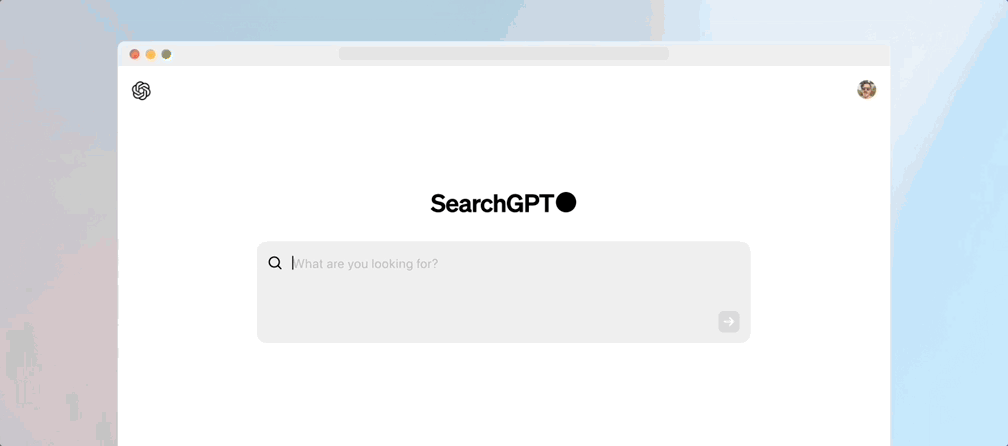Cast your mind back a few months. OpenAI was gearing up for its Spring Update event, and the rumor mill was working overtime to pump out leaks, speculations, and theories. One of the most persistent rumors was that of SearchGPT, an AI-fuelled competitor to Google.
That rumor didn’t materialize at the time. Instead, we got a new flagship model called GPT-4o and some teasers for some pretty wild voice capabilities. Fast forward to today, and OpenAI is finally ready to pull back the curtain on SearchGPT.
SearchGPT is exactly what it sounds like. It’s a search engine infused with a healthy dose of the company’s GPT AI technology. It’s billed as a potentially smarter, context-aware alternative to the long-dominant Google Search. When you first boot it up, you’ll be greeted with a large text box asking, “What are you looking for?” Once you give it an answer, the app will get to work searching, but rather than returning a list of results similar to Google, SearchGPT will try to organize, summarize, and make sense of them.
In one example, a user searches for music festivals in California during the announcement video. Once the user hits enter, SearchGPT scans the web similar to how ChatGPT does and pulls in the closest music festivals, gives each one a quick summary of what to expect and follows them up with affiliate links.
Throughout the announcement, the company stresses that SearchGPT is still only a prototype and is not quite ready for mass adoption. It’s only opening to 10,000 test users at launch. Of course, it’s using OpenAI’s suite of GPT-4 language models, and according to one representative, the company is working with third-party partners with the goal of directly integrating search into ChatGPT.






